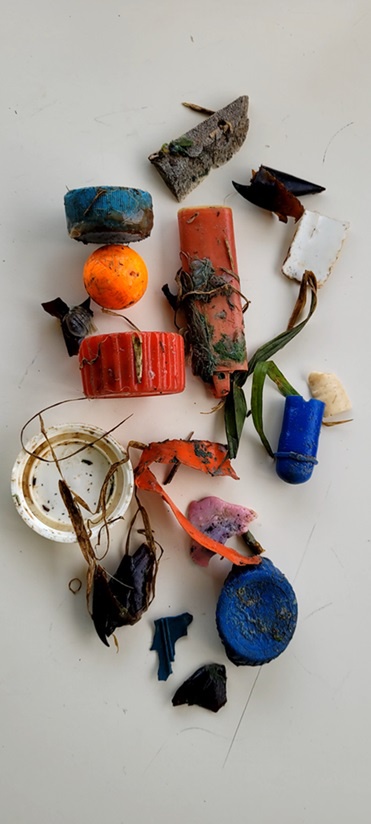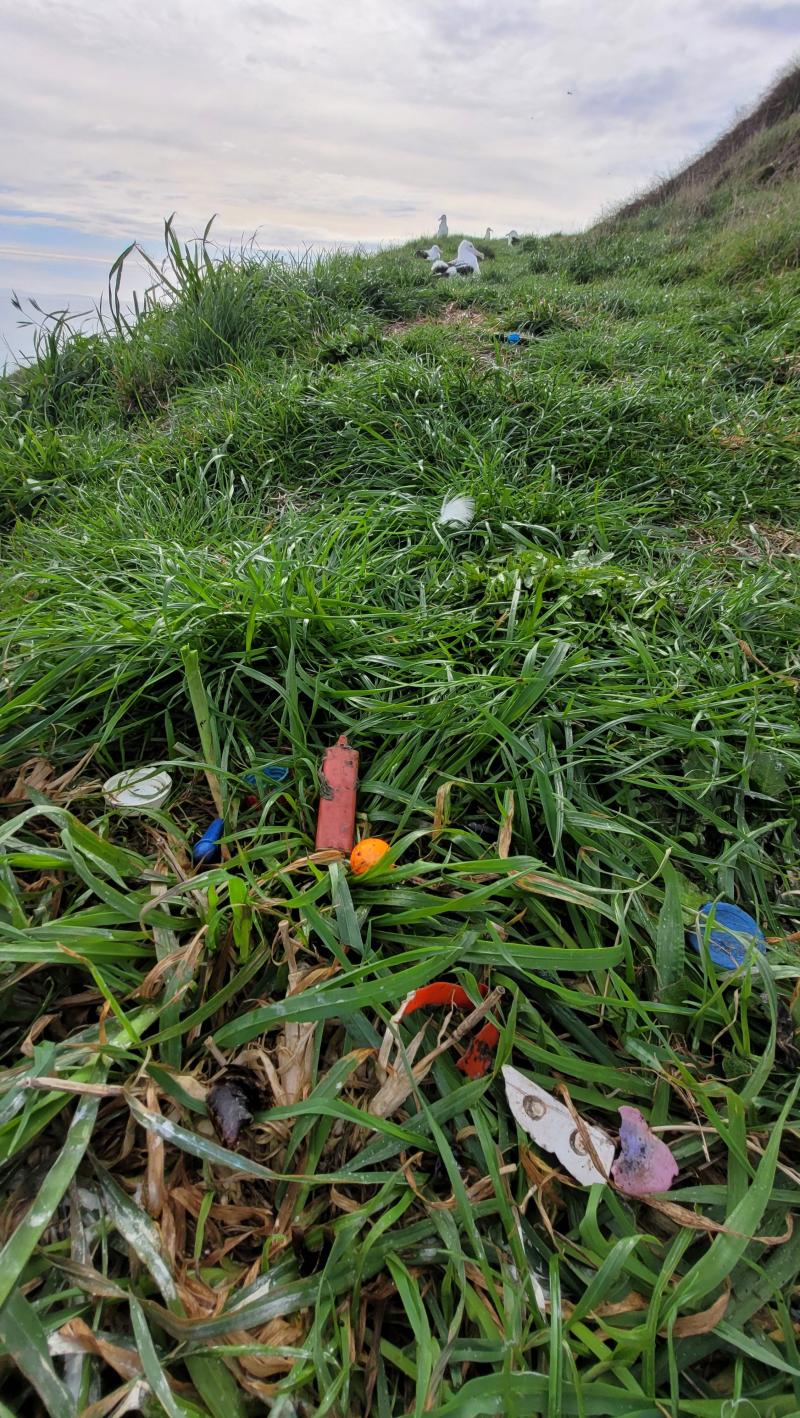 Plastic items regurgitated by a Northern Royal Albatross chick at Pukekura/Taiaroa Head. Recognizable are four bottle caps, a red cigarette lighter, four brown squid beaks and two translucent fish eye lenses, among other plastic fragments, photograph by Sharyn Broni
Plastic items regurgitated by a Northern Royal Albatross chick at Pukekura/Taiaroa Head. Recognizable are four bottle caps, a red cigarette lighter, four brown squid beaks and two translucent fish eye lenses, among other plastic fragments, photograph by Sharyn Broni
Endangered Northern Royal Albatross Diomedea sanfordi chicks in the mainland colony at Pukekura/Taiaroa Head, South Island, New Zealand are regularly fed plastic items that their parents have swallowed at sea. Albatross chicks close to fledging tend to regurgitate undigested hard parts emanating from their natural prey, notably squid beaks, but also any plastic items swallowed, in the form of a bolus.
The items depicted here collected in the colony this month are the latest examples.

The same regurgitation before collection, photograph by Colin Facer
Read more cases featured in ACAP Latest News of plastics regurgitated by albatross chicks at Pukekura/Taiaroa here.
Plastic Pollution was the theme for the fourth World Albatross Day on 19 June 2023.
With thanks to the Albatross Lovers Facebook page.
John Cooper, Emeritus Information Officer, Agreement on the Conservation of Albatrosses and Petrels, 22 August 2024

 English
English  Français
Français  Español
Español